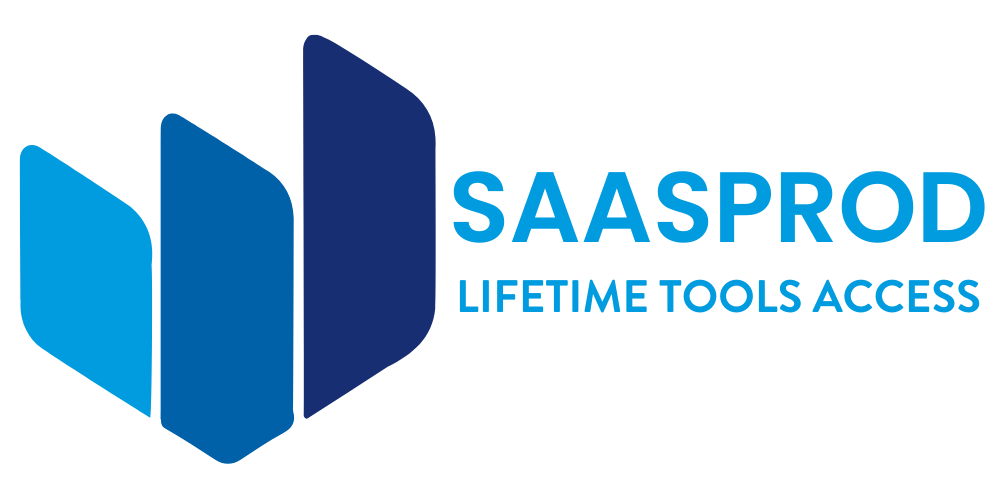Choosing the right business management software is crucial for success. It helps streamline operations and improve efficiency.
Running a business means juggling many tasks. Managing finances, tracking inventory, and communicating with clients can be overwhelming. This is where business management software comes in. It organizes and automates these tasks, making your work easier. But with so many options available, how do you know which one to pick?
The right software can transform your business operations, while the wrong choice can cause headaches. In this guide, we will explore key factors to consider. You’ll learn what to look for and how to make the best decision for your company’s needs. Stay tuned to discover your perfect match.

Credit: www.vnmtsolutions.com
Importance Of Business Management Software
Business management software plays a crucial role in today’s fast-paced business world. It helps companies stay organized and manage their resources effectively. Selecting the right software can significantly impact your business’s success and growth.
Boosting Efficiency
Business management software improves efficiency by automating repetitive tasks. This frees up time for employees to focus on more important activities. It also reduces the chances of human error, leading to more accurate results.
Many tools offer real-time data analysis. This allows managers to make informed decisions quickly. Having the right software ensures that your business runs smoothly and efficiently.
Streamlining Operations
Streamlining operations is another key advantage of business management software. It integrates various business functions into a single platform. This makes it easier to manage different aspects of your business, from finance to HR.
With everything in one place, employees can access the information they need without delay. This leads to faster project completion and improved customer satisfaction. Efficient operations also result in cost savings and better resource allocation.
The right software can help you stay ahead of the competition. It provides tools to monitor performance and identify areas for improvement. This proactive approach ensures that your business remains agile and responsive to market changes.
Identifying Business Needs
Choosing the right business management software begins with identifying specific business needs. Understand your goals, workflow, and pain points. Select software that aligns with these requirements for effective management.
Identifying your business needs is the first essential step when choosing the right business management software. Without a clear understanding of what your business requires, you might end up investing in a tool that doesn’t quite fit your operations. Let’s break down the process into manageable parts to help you make an informed decision.Assessing Workflow
To start, take a good look at your current workflow. How do tasks move from one stage to the next? You need to identify bottlenecks and inefficiencies. Maybe your team spends too much time on manual data entry, or communication between departments is slow. Consider using a flowchart to visualize the process. This simple tool can reveal areas where software could streamline operations.Setting Objectives
Once you’ve assessed your workflow, set clear objectives for what you want the software to achieve. Are you looking to improve project management? Maybe you need better customer relationship management (CRM). Write down these goals and prioritize them. Don’t just think about current needs. Consider future growth and scalability. The right software should grow with your business. Think about a time when you invested in a tool that didn’t quite fit. How did it impact your productivity? Use this experience to guide your decision. Identifying business needs might seem daunting, but it’s a crucial step. What specific feature would make the biggest difference for you?Evaluating Software Features
Choosing the right business management software can be a daunting task. With many options available, it’s essential to evaluate the software features carefully. This ensures the software meets your business needs and helps you achieve your goals efficiently.
Core Functions
The core functions of business management software are the backbone of its utility. These include features like task management, scheduling, and reporting. Ensure the software provides a user-friendly interface for these core tasks.
Consider the ease of use. Your team should be able to navigate the software without extensive training. Check if the software supports mobile access, allowing your team to work from anywhere.
Look for compatibility with existing tools. The software should integrate seamlessly with your current systems, like email and CRM tools. This reduces the disruption to your workflow and enhances productivity.
Advanced Tools
Beyond the basics, advanced tools offer additional value. Features like automation, analytics, and collaboration tools can significantly boost efficiency. Evaluate how these tools align with your business processes.
For instance, automation can save time on repetitive tasks, freeing up your team for more strategic work. Analytics provide insights into your operations, helping you make informed decisions. Collaboration tools facilitate communication, especially for remote teams.
Consider scalability. As your business grows, your software should adapt to increasing demands. Ensure the software can handle more users, data, and complexity without a hitch.
What specific features do you think would most benefit your business? Identifying these will guide you in selecting software that truly adds value.
User-friendliness
When selecting business management software, user-friendliness is a key factor. It impacts how easily your team adopts and uses the new system. A user-friendly software ensures smooth operations and boosts productivity. Let’s explore the importance of ease of use, and the available training and support.
Ease Of Use
The software should have an intuitive interface. Users should navigate through features without much effort. Clear menus and well-organized dashboards are essential. They help users find what they need quickly. A steep learning curve can frustrate users. It may even lead to resistance in using the software.
A good software solution offers customization options. This allows users to tailor the interface to their needs. Simple tasks should be easy to perform. Complex tasks should have guided workflows. This ensures users can complete their work efficiently.
Training And Support
Even the best software requires some training. Check if the vendor provides comprehensive training materials. These can include video tutorials, user manuals, and FAQs. Some vendors offer in-person training sessions. These can be very useful for complex systems.
Support is crucial once the software is in use. Look for vendors that offer 24/7 support. This ensures help is available whenever needed. Support options can include phone, email, and live chat. Responsive support teams can resolve issues quickly. This minimizes downtime and keeps your business running smoothly.
Integration Capabilities
Selecting the right business management software requires checking integration capabilities. Ensure the software can connect with existing tools. This helps streamline operations efficiently.
Choosing the right business management software is crucial for your company’s success. One important aspect to consider is the software’s integration capabilities. The ability to seamlessly integrate with existing systems can save you time, reduce errors, and improve overall efficiency.Compatibility With Existing Systems
Before selecting new software, check its compatibility with your current systems. Does it work well with your existing software? This ensures a smooth transition and helps avoid potential disruptions in your business operations. Verify if the new software can easily communicate with your current tools. This includes accounting systems, CRM, ERP, and other essential applications. Compatibility reduces the need for manual data entry, saving you time and reducing errors. It’s also wise to consult with your IT team. They can provide insights on how well the new software will fit within your current infrastructure. This proactive step can help prevent future technical issues.Data Migration
Data migration is another critical factor. How easy is it to transfer your existing data to the new system? Efficient data migration ensures that you do not lose valuable information during the switch. Look for software that offers robust data migration tools. These tools should simplify the process and ensure data integrity. This way, you can continue your operations without missing a beat. Consider the support available during the migration process. Does the software provider offer assistance or resources? Having support can make a significant difference and ease the transition. Have you ever experienced a challenging data migration? How did it impact your business? Sharing experiences with colleagues can provide additional insights and help you make a more informed decision. In summary, when choosing business management software, focus on its integration capabilities. Ensure it is compatible with your existing systems and offers efficient data migration tools. This approach will help you select software that enhances your business operations, rather than hindering them.
Credit: heavyvehicleinspection.com
Scalability
Choosing the right business management software is crucial for any company. One important factor to consider is scalability. Scalability ensures the software can grow with your business. This allows you to handle increased workload and users without compromising performance.
Handling Growth
As your business expands, the demands on your software will increase. A scalable solution can manage more data, users, and transactions. This avoids the need for frequent upgrades or replacements. Look for software that supports additional features and integrations. These can be added as needed to support growth.
Evaluate the software’s capacity to handle large volumes of data. This includes customer information, sales, and inventory. Check if the software can maintain speed and efficiency as your database grows. Ensure it can support multiple users working simultaneously without lag.
Future-proofing
Future-proofing your business means preparing for long-term success. Choose software that can adapt to future changes in technology and market demands. This includes regular updates and support from the provider. Ensure the software is compatible with other tools and platforms.
Look for solutions with flexible pricing plans. This allows your business to scale up or down based on needs. Make sure the software provider has a strong track record. Their commitment to innovation and customer support is crucial. This guarantees that your investment remains valuable over time.
Cost Considerations
When it comes to choosing the right business management software, cost considerations are crucial. Finding the right balance between affordability and functionality can be challenging. Let’s dive into the key aspects of cost to help you make an informed decision.
Budgeting
First, you need to set a clear budget. Determine how much you’re willing to spend on software. Factor in both initial costs and ongoing expenses.
Consider the size of your business. Smaller businesses might have tighter budgets compared to larger enterprises. Make sure your budget aligns with your business size and needs.
It’s also essential to prioritize features. Identify which features are must-haves and which are nice-to-haves. This will help you avoid overspending on unnecessary functionalities.
Total Cost Of Ownership
Beyond the initial purchase price, consider the total cost of ownership (TCO). TCO includes all costs associated with using the software over time.
Think about maintenance fees. Some software requires regular updates and support, which can add up. Make sure to include these in your calculations.
Training costs are another factor. Will your team need training to use the new software? If so, account for these expenses in your TCO.
Don’t forget about integration costs. If the software needs to work with your existing systems, there might be additional expenses for integration. Ensure these are considered in your overall budget.
By carefully considering your budget and the total cost of ownership, you can choose a business management software that fits your financial constraints while meeting your needs. What other cost-related factors have you encountered when selecting software?
Expert Recommendations
Choosing the right business management software can be daunting. Expert recommendations can guide you through this process. Experts have deep knowledge of software options. They understand industry trends and user needs. Let’s explore some expert insights and success stories.
Industry Insights
Experts study the latest trends in business software. They know which features are essential for different industries. For retail, inventory management is crucial. For manufacturing, production scheduling tools are vital. Experts suggest looking for software that fits your specific industry needs. They also recommend considering software scalability. Your business will grow, and your software should be able to support that growth.
Success Stories
Many businesses share their software success stories. These stories provide real-world examples of software benefits. For instance, a small bakery used a new software to manage orders. The software improved their efficiency and customer satisfaction. Another example is a tech startup that used project management tools. This helped them meet deadlines and improve team collaboration. Learning from these stories can help you make an informed choice.

Credit: qoblex.com
Frequently Asked Questions
How Do I Choose A Management Software?
To choose management software, identify your needs, set a budget, read reviews, request demos, and ensure scalability.
Which Software Is Best For Business Management?
The best software for business management includes options like Monday. com, Asana, and Trello. Each offers unique features for project management, collaboration, and productivity. Choose based on your specific needs and budget.
How To Choose A Software For Your Business?
Identify your business needs. Research options and read reviews. Ensure compatibility with existing systems. Test the software with a free trial. Evaluate cost and support services.
What Is The Best Software For Small Business Management?
The best software for small business management includes QuickBooks, Trello, and Slack. They offer accounting, project management, and communication solutions.
Conclusion
Choosing the right business management software boosts efficiency and streamlines operations. Evaluate your needs carefully. Compare features and costs. Seek user-friendly options. Prioritize security and integration capabilities. Read reviews and ask for demos. Make an informed decision. The right software can transform your business operations.
Simplify tasks and improve productivity. Stay ahead in the competitive market. Investing time in choosing the right software pays off. Your business deserves the best tools. Happy choosing!


